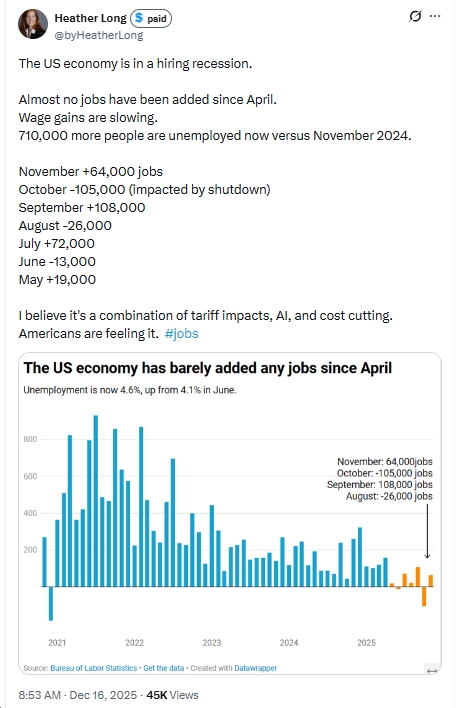 The House GOP budget outline as written by Rep. Paul Ryan isn’t about the deficit – the Congressional Budget Office says the plan would actually increase the deficit (70% of GDP in 2022 vs. 67% under the status quo). So what’s it really about? Cutting programs for the poor and clean energy investments to finance tax cuts for the rich and continued subsidies for Big Oil.
The House GOP budget outline as written by Rep. Paul Ryan isn’t about the deficit – the Congressional Budget Office says the plan would actually increase the deficit (70% of GDP in 2022 vs. 67% under the status quo). So what’s it really about? Cutting programs for the poor and clean energy investments to finance tax cuts for the rich and continued subsidies for Big Oil.
As Michael Grunwald writes, in a Washington where Congress is packed with millionaires who need to raise billions from wealthy donors, the Ryan plan is being welcomed with open arms:
Supposedly, Ryan is brave because he’s willing to start an “adult conversation” about the deficit and entitlements in Washington. But politicians talk about the deficit and entitlements all the time. Some close observers of American politics may recall that President Obama proposed a health care bill last year; it included half a billion dollars in Medicare cuts, which Republicans attacked as vicious rationing that would pull the plug on Grandma. I don’t recall a lot of David Brooks commentary about the courage of that plan, even though, unlike Ryan’s, it had a chance of becoming law. […]
Liberal bloggers argue that Ryan gets lionized because he’s a Republican. But Joe Klein’s no Republican; he’s savaged the GOP as a party of nihilists. (He also ridiculed Ryan’s plan for “massive political amnesia.”) That said, the left has a point when it complains about the Washington consensus that raising taxes on the rich is crass populism and class warfare, while cutting services for the poor is fiscal responsibility and the hallmark of seriousness. There is a tendency in Washington to associate austerity for the masses with “straight talk” and “strong medicine,” a yearning for politicians to stop giving their constituents candy and start delivering some long-overdue pain. In fact, Medicare and Medicaid, for all their cost challenges, are not candy.
James Fallows says the House GOP budget is nothing more than clever marketing of terrible policy:
1) A plan to deal with budget problems that says virtually nothing about military spending is neither brave nor serious. That would be enough to disqualify it from the “serious” bracket, but there’s more.
2) A plan that proposes to eliminate tax loopholes and deductions, but doesn’t say what any of those are, is neither brave nor serious. It is, instead canny — or cynical, take your pick. The reality is that many of these deductions, notably for home-mortgage interest payments, are popular and therefore risky to talk about eliminating.
3) A plan that exempts from future Medicare cuts anyone born before 1957 — about a quarter of the population, which includes me — is neither brave nor serious. See “canny or cynical: take your pick” above.
4) A plan to reconcile revenue and spending, which rules out axiomatically any conceivable increase in tax rates, is neither brave nor serious. Rather, it is exactly as brave and serious as some opposite-extreme proposal that ruled out axiomatically any conceivable cut in entitlement spending or discretionary accounts.
5) A plan to reduce the federal deficit by granting big tax reductions to the highest-income Americans, at a time when their tax rates are very low by historic standards and and their share of the national income is extremely high, and when middle-class job creation is our main economic challenge, is neither brave nor serious. See “cynical,” above.
6) A plan that identifies rising health-care costs as the main problem in public spending, but avoids altogether the question of how to contain those costs, is neither brave nor serious. This is a longer and more complicated discussion (see below*); but I submit that the more closely anyone looks at the Ryan plan, the less “serious” it will seem on this extremely important front.
7) A plan that reduces, among other things, research on future energy sources and technologies by about 85% may be “brave,” but it’s also crazy and short-sighted.
As Paul Krugman writes, “The G.O.P. budget plan isn’t a good-faith effort to put America’s fiscal house in order; it’s voodoo economics, with an extra dose of fantasy, and a large helping of mean-spiritedness.”



![Thursday News: “Europe draws red line on Greenland after a year of trying to pacify Trump”; “ICE Agent Kills Woman, DHS Tells Obvious, Insane Lies About It”; “Trump’s DOJ sued Virginia. Our attorney general surrendered”; “Political domino effect hits Alexandria as Sen. Ebbin [to resign] to join Spanberger administration”](https://bluevirginia.us/wp-content/uploads/2026/01/montage010826.jpg)













